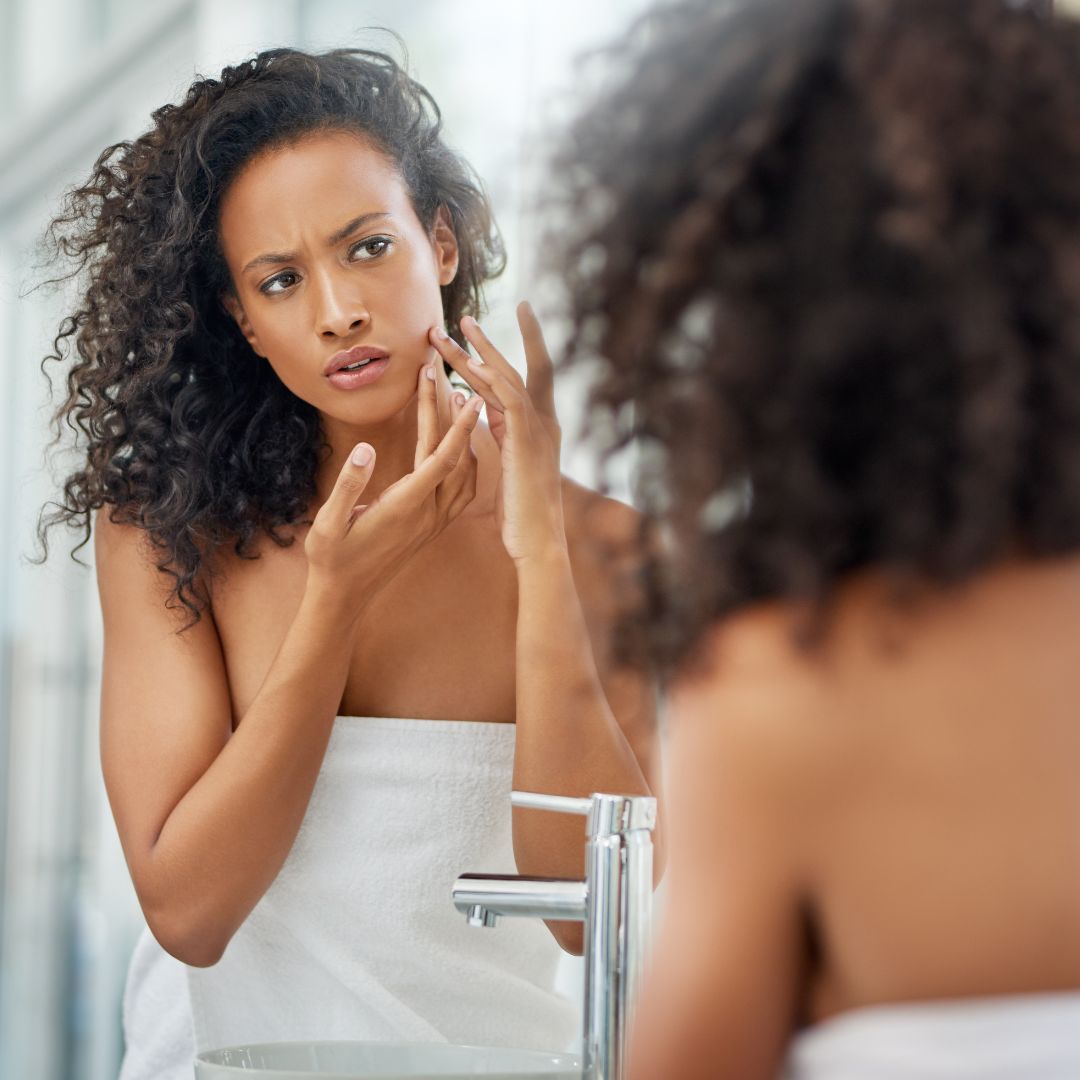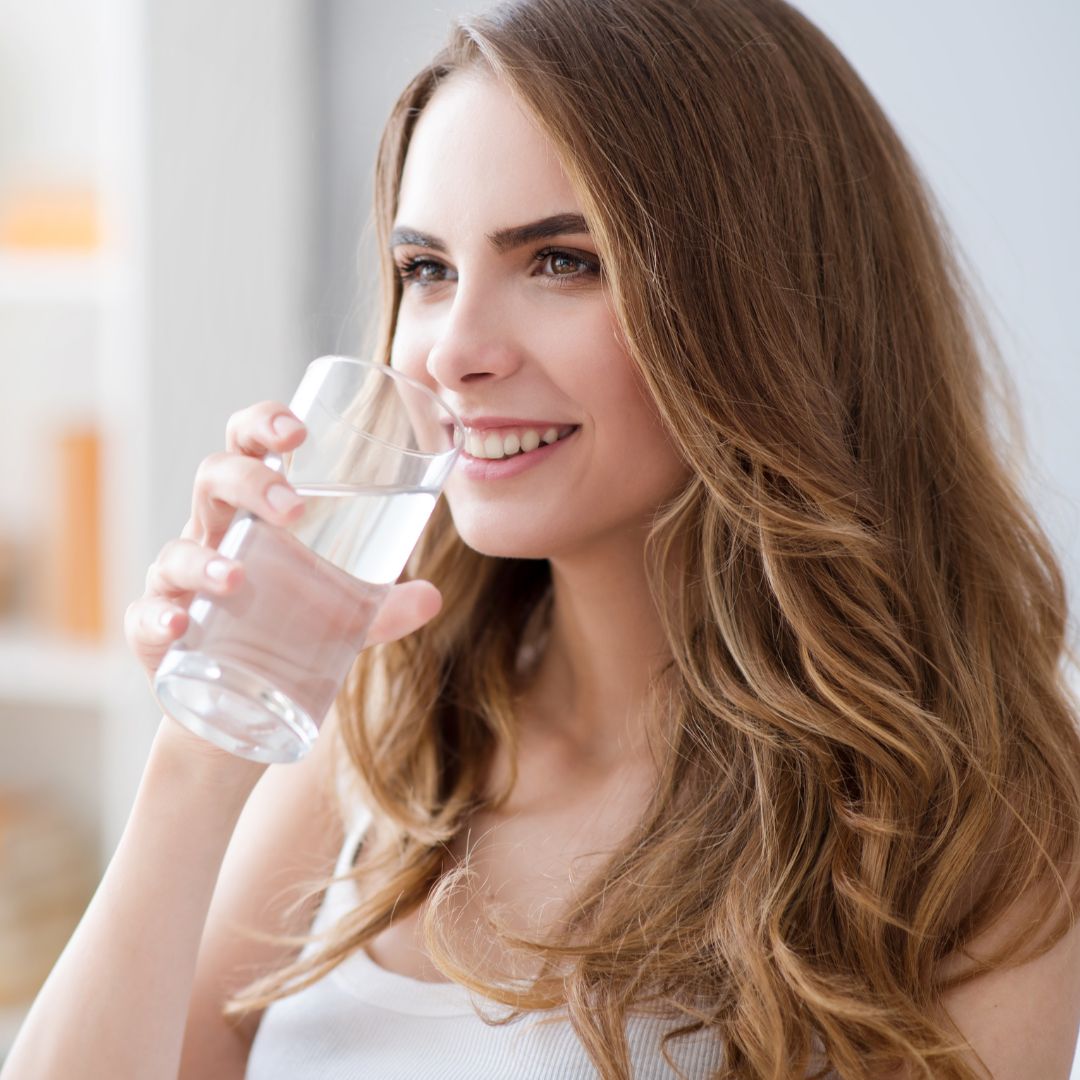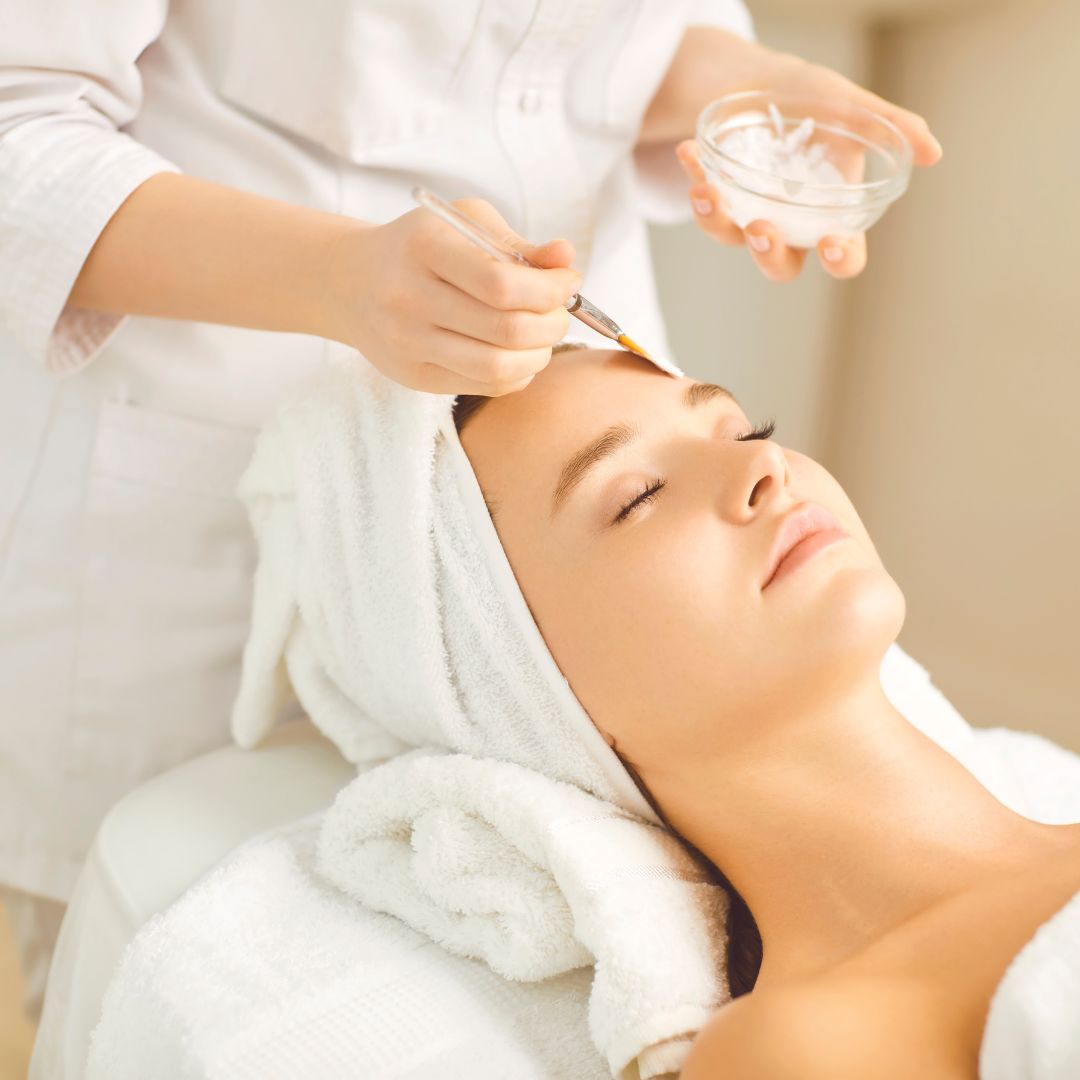6 Min Read
5 Steps To Treat Acne Naturally

Skin is our largest organ system. It is responsible for about 10% of the body’s toxin elimination working together with the colon, kidneys and lungs. The skin is able to sense internal imbalances in digestion, hormones, immune function and inflammation often resulting in the 3 most common skin conditions - eczema, acne and psoriasis. Addressing both internal and external processes in the body can go a long way in treating these most common skin issues. Today’s blog post is all about acne.
What is Acne?
Acne is most common in the teenage years but can affect persons of all ages and can occur on the face, neck, back, chest and shoulders. Acne occurs when hair follicles become clogged with oil (sebum) and dead skin cells. These follicles are then unable to release the dead skin cells, which creates a plug from which bacteria can thrive, most commonly Propionibacterium acnes. This bacteria can cause swelling and when this plug breaks down an acne lesion develops.
Acne is a cosmetic condition that may be painful and can cause scarring. Although acne is an external condition, it can tell us a lot about what is happening on the inside. The facial pattern for acne can give us some insight as to what body systems need extra support. For example acne around the mouth, chin and jawline can signify hormone imbalances. Whereas forehead acne can signify the digestive system needs support and acne on cheeks shed light on the respiratory system.
What Causes Acne?
Contrary to popular belief, acne is not a result of improper facial hygiene. More often than not, acne is an indicator that there is an internal problem. Acne is a multifactorial condition that can be caused by any or all of the following:
- Altered sebum production
- The presence of Propionibacterium acnes
- Changing hormone levels
- Some medications
- Hereditary
- Greasy makeup
- Inflammation
- Blood sugar dysregulation
- Gut microbiome dysbiosis
- Nutrient deficiencies
- Disrupted skin pH
Types of Acne
- Whiteheads (pimples that stay under the skin)
- Black heads (Pimples that rise to the skin’s surface)
- Papules (small pink bumps)
- Pustules (pimples that are red at the bottom and pus on the top)
- Nodules (large, painful, solid pimples that are deep in the skin)
- Cysts (deep, painful, pus-filled pimples that can cause scars)
5-Step Approach to Acne Free Skin (Inside-Out Approach)
When addressing skin conditions, we need to look at what is going on inside, not just what is happening externally. Therefore it is important to get to the root cause of acne, whether it’s hormones, diet, or stress. Making improvements to diet, lifestyle and the intestinal milieu can help improve skin dramatically.
The goal of naturopathic acne treatment is to control inflammation, modulate the body’s natural oils and balance hormones.
Here is my 5-step approach to acne free skin!
1. Address Hormonal imbalances
First and foremost, we need to address hormones. Hormones let your body know that we are experiencing some kind of change. Hormones can increase the amount of oil the body makes, which then increases Proprinobaceteria in the pores leading to acne.
An increase in insulin (eating lots of simple carbohydrates) and cortisol (high stress) can lead to increases in testosterone which can cause breakouts. So if you are experiencing other hormone related symptoms like thinning hair, increased bodily hair or irregular menstrual cycle, your hormones may need some balancing. Hormone testing is a useful tool, whether it be through urine or blood to assess for any imbalances.
Furthermore, make sure to consider your birth control pill (OCP). Certain OCP’s have higher androgen activity than others, which can trigger acne.
2. Address Digestion
The liver is responsible for detoxifying hormones and the colon is responsible for eliminating them. If your bowel movements are not regular, the hormones are sitting in the gut waiting to be reactivated and reabsorbed by the “bad” gut bacteria and further contribute to hormonal imbalances in the body.
As well, consuming food that you are sensitive to ie. food sensitivities can result in increased amounts of inflammation.
Try a probiotic supplement to promote good healthy bacteria in the body. Part of the problem with acne is that Propionibacterium acnes is high. To restore the balance, a probiotic can help. Also consider food sensitivity testing to reveal any sensitivities you may have when it comes to foods!

3. Eliminate dairy and high glycemic index foods
Avoid blood sugar fluctuations by following a low-glycemic index diet. High glycemic index foods can quickly spike your blood sugar which raises insulin levels. High insulin levels can lead to increased androgen production, like testosterone, leading to excess sebum production which can then worsen acne! So it’s important to cut out sugary foods like pastries, pasta and white bread to help balance blood sugar levels. Switching to a low-glycemic diet can reduce androgen levels which can then decrease acne lesions. The Paleo diet eliminates refined sugars and high glycemic grains.
There is also a link between bovine dairy intake and acne vulgaris. Dairy products promote insulin secretion and hormones like IGF-1 which is a major contributor to acne. Replace cow’s milk with coconut milk or nut based milks.
Try a low GI diet, remove dairy for 6-8 weeks and also test your insulin resistance!
4. Stay Hydrated
Water hydrates and plumps the skin cells and distributes oxygen to the cells which improves circulation. Skin cells are made up of mostly water, so staying hydration is important for glowing skin. Hydration also helps with detoxification and elimination.

5. Replace Nutrient Deficiencies
Certain nutrients have been shown to be effective for acne prone skin.
-
Zinc is a great nutrient that has direct antimicrobial activity and helps to heal wounds and tissues. Supplementation with zinc has been shown to decrease acne lesions and cysts.
- Try eating more pumpkin seeds, lamb and chicken to get some more zinc through your diet.
- Supplemental Dose: 25-30 mg of zinc with 2 mg of copper
-
Omega-3 Fatty acids - Omega 3’s help to soothe inflamed skin and help to balance hormones.
- Omega’-3 fatty acids can be found in nuts, flax, hemp seeds, avocados, olive oil and many types of fish
- Supplemental Dose: 2-3 grams/day
-
Fiber - Fiber helps to control blood sugar by slowing down sugar absorption and keeping you fuller for longer. Since cortisol spikes can trigger blood sugar elevations and insulin spikes, fiber can help to balance out the spike in blood sugar.
- Good sources of fiber include, flax seeds, avocados, and green vegetables.
- Supplemental Dose: Aim for about 30 mg/day
- Green Tea - Studies have shown that green tea extract, specifically the EGCG content has antimicrobial activity against the Propionibacterium Acnes and can also decrease sebum production though lowering androgens, like testosterone.
- Supplemental Dose: 200-300 mg of EGCG/day
- Niacinamide - Topical 4% niacinamide gel was successful at reducing acne lesions and acne severity in a clinical study. This is attributed to the anti-inflammatory properties of niacinamide and its antibacterial effect against Propionobacterium acnes.
- Niacinamide also works great when combined with zinc.
- Supplemental Dose: 4% niacinamide topical gel applied topically to the affected area a couple times a day OR 600-700 mg of niacinamide orally

Keep in mind what you chose to put ON your skin is also very important. Stop using strong washes or creams. Harsh chemicals can strip the natural pH of the skin which can lead to higher amounts of oil production. Try gentle foaming cleansers, exfoliaters and creams that are glycerin free!
Since acne is a multifactorial condition, treatment needs to also take a multifactorial inside-out approach. It is important to address digestion, diet, hormones, gut imbalances and blood sugar dysregulation when finding the root cause of acne. Always remember to speak to your healthcare practitioners to get an individualized treatment plan for you!





